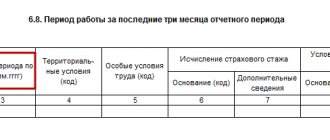It is not so easy to distinguish an employment agreement from a form of a civil law nature in practical work.
Especially if, by agreement of the parties, the subordinate was given a standardized task and the condition of his payment based on the final result and the actual completion of the amount of work.
For this reason, employers often make legal mistakes , which can lead to significant material losses.
Analysis of civil agreements leads to the conclusion that they are concluded for the performance of services or specific work , which to a certain extent brings them closer to related employment contracts. Both forms are considered paid , providing for payment for the amount of work performed.
Legislation provides an entrepreneur who uses hired labor with the opportunity to choose between a civil contract and an employment contract. To avoid mistakes and disputes with the tax office , you need to know what their differences are and evaluate their advantages and disadvantages for different situations.
Features of each type of agreement
By signing a civil contract, the Contractor, who undertakes to perform the agreed type of work, does not receive some guarantees that he could count on under the labor form of the agreement. Basic rights :
- Salary payment 2 rubles/month . and more often.
- Salary in the form of vacation pay with reservation of a workplace.
- Payment of travel expenses and leaving the employee in his place when sent on a business trip.
- Providing leave with workplace reservation
- Guarantee after termination of employment in the form of severance pay and the priority right to remain in the company.
- Payment of sick leave.
- Compensation of costs when operating own funds .
Why is it so important to choose the right way to design a performer? Illiterate qualifications can have the most unpredictable consequences for the Employer. For example, if a civil law agreement was drawn up where a labor agreement should be concluded, then the court may intervene to reclassify the agreement.
For the Employer, this means paying a salary no less than the minimum amount approved by the state, including the performer on the staff, compensation for moral damage and payment of legal costs . In addition, tax (FSS and penalties) is also required.
Fundamental differences between forms
In order to decide in time which type of agreement is better to conclude, you need to study the main features by which they can be compared.
According to the labor version of the document, an employee can personally perform the duties of an accountant or electrician, and not the scope of work . A mandatory point is compliance with the labor regulations existing in the company.
Under a civil agreement, the Contractor assumes responsibility for performing the agreed amount of work . He organizes his working time and space himself and is not subject to any other rules. The phrase in the contract “obliged to comply with internal regulations” can have negative consequences .
In the labor form of relations, specialists are considered subordinate to the employer within the framework of their job responsibilities. equal parties works .
The labor option requires the Employer to regularly pay a salary of 2 rubles per month in accordance with the schedule.
The civil law document does not provide for such liability ; the payment procedure is determined by the parties.
In labor relations, a specialist has his own function.
Alternatively , the document assumes obtaining the planned result from the execution of the order. The phrase “performs the functions of an economist in the organization” in this document is incorrect.
A fixed-term employment contract is only in some cases. Most often, it is indefinite . A civil agreement is concluded for a limited time or until a material result appears.
So, if the Employer intends to choose the civil form of the document, it is worth checking whether it contains any “pitfalls” ─ provisions similar to the wording of the employment contract.
The unclear description of the subject of the agreement must be reformulated, phrases like “payment in accordance with the staffing table” must be replaced with more correct ones . Otherwise, there is a possibility that the contract will be recognized as an employment contract in the courts.
Distinctive features of the two treaties
Let us consider the main features in which these two agreements differ from each other.
They will help determine when an employment contract can be concluded and when a civil law contract can be concluded. According to the employment contract, the employee, for compensation and personally, performs a certain labor function in the organization: engineer, economist, and not a specific job or service, while being subject to the internal labor regulations established in the organization.
Under a civil contract, a person performs a specific service or work. He is not subject to the internal labor regulations of the organization.
Therefore, it is unacceptable to include the following wording in a civil law contract: “The person is obliged to comply with the internal labor regulations of the enterprise.”
In labor relations, the employee occupies a subordinate position in relation to the employer.
In civil legal relations the principle of equality of parties applies.
According to the employment contract, the employee has the right to receive wages at least 2 times a month.
Under a civil contract, the procedure for paying remuneration can be determined by agreement of the parties.
In labor relations, the employee performs a labor function.
A civil contract is aimed at obtaining a specific tangible result from work performed or services provided.
Thus, it is unacceptable in a civil law contract to state that a person performs the functions of, for example, an engineer at an enterprise.
An employment contract can be fixed-term only in strictly defined cases.
A civil contract for the performance of work or the provision of services is concluded for a certain period or until the result occurs.
If such conditions exist, then they must either be removed or reformulated so that they meet the properties of a civil law contract. Otherwise, this contract may be recognized as an employment contract in court.
There are certain signs that allow you to distinguish an employment contract from civil law contracts:
- consolidation of the labor function in the subject of the contract (the employee personally performs work of a certain type, and not a one-time task from the customer);
- absence of a specific scope of work in contracts (the labor process itself is what matters to the parties, not the achieved result);
- monthly guaranteed wages in a certain amount;
- performance of work under an employment contract presupposes the inclusion of the employee in the company’s production activities;
- the employment contract provides for the employee’s subordination to the internal labor regulations, its component element is the implementation of the employer’s orders during the labor process, for improper implementation of which the employee may be subject to disciplinary liability;
- control by the employer;
- provision of working conditions by the employer to the employee;
- availability of guarantees of social security.
Disadvantages and advantages of an employment contract
We note the advantages and disadvantages of drawing up an employment contract for the Employer.
Pros:
- The employee complies with labor regulations , otherwise penalties are applied to him, including dismissal.
- When an employment contract is drawn up with, there are options for calculating unified social tax . The position of the tax authorities is that UST payments for individual entrepreneurs are made by the Employer. But according to 235 of the Tax Code of the Russian Federation, an individual entrepreneur is a taxpayer, and the object of taxation here is income from business or other activities, which gives him the right to pay the unified social tax personally.
Minuses:
- The need to pay wages taking into account the minimum wage and the stipulated deadlines for employees who fulfill the labor standard and have worked the specified number of hours.
- Registration of a specialist on the staff of the enterprise with adjustment of the staffing table . Changes must be agreed upon with the trade union body of the team (if there is one in the company).
- The right to severance pay (after dismissal), salary, paid leave (including special leave for employees with children), overtime pay.
- Creating conditions to carry out his functions without distracting him from fulfilling contractual obligations.
- Maintaining documentation about personnel and submitting reports to regulatory authorities (FSS of the Russian Federation, Pension Fund of the Russian Federation, Compulsory Medical Insurance Fund of the Russian Federation, State Statistics Committee of the Russian Federation) with payment of insurance premiums .
For an employee, the specifics of registration under an employment contract are different.
Pros:
- The right to pay wages on time and taking into account the minimum wage prescribed by the Federal Law when fulfilling the plan or functional duties.
- Right to full-time employee status.
- guarantees : payment of benefits upon dismissal, salaries from 2 rubles per month, guarantees for employees with children, payment of vacation pay and overtime, etc.
- Providing the conditions that a subordinate needs to perform functional duties.
- Social insurance law .
- Guarantees of length of service for the transition to a retirement pension.
Minuses:
- Obligation to adhere to internal rules . If it is violated, the employer has the right to discipline or dismissal.
- For the salary amount is not subject to Unified Tax at the rate of 35.6%, existing for the Employer, the individual entrepreneur himself pays Unified Tax (13.2%).
Sample employment contract.
Differences between an employment contract and GPC
Position VS list of services
TC: an employee gets a specific position in a company. He constantly performs his work duties.
GPC: the contract specifies a list of services that the employee will have to perform.
The working process
TK: management orders are carried out as they are received.
GPC: management does not interfere with the work process. The result itself is important to him.
Schedule
TC: internal rules are observed, in particular the work schedule, which is prescribed in the contract.
GPC: the start and end date of the work is indicated. The performer can work at any time and anywhere. Only the result is important.
Workplace
TK: the employee needs to be allocated everything necessary - a workplace, materials, a computer.
GPC: provision of any conditions is possible, but not required.
Executive person
TC: labor duties are performed by the employee himself.
GPC: third parties can be involved.
Payment of remuneration
TC: salaries are paid on set dates twice a month. It cannot be lower than the established minimum wage.
GPC: payment is made by agreement.
Taxes
TC: withholding personal income tax, paying contributions to the Pension Fund, Compulsory Medical Insurance Fund and Social Insurance Fund.
GPC: personal income tax withholding, contributions to the Pension Fund, Compulsory Medical Insurance Fund. Contributions to the Social Insurance Fund are not paid.
Labor guarantees
TC: compensation of expenses, paid leave, payment of sick leave and benefits, compensation upon dismissal; preservation of the employee’s average earnings in cases provided for by law (for example, during downtime).
GPC: no labor guarantees.
Employment history
TK: a work book, orders, personal cards T-2 are issued.
GPC: the device only requires a contract. It closes when the work is completed.
Advantages and disadvantages of a civil agreement
Pros:
- The contractor is interested in the result, so he creates the place, time of work, and methods for completing the order himself . If there are no other terms in the contract, he uses his own material.
- UST, in particular, the Social Insurance Fund tax is not charged
- There are no guarantees of the Labor Code of the Russian Federation.
- Salary insurance contributions are not charged unless otherwise indicated in the papers.
- Payment of monetary compensation is carried out upon completion of the work (advance is possible) in accordance with the amount specified in the contract based on the results.
Minuses:
- The contractor cannot be held accountable for ignoring internal regulations, since work regulations are not provided for in this form of contract.
- The risk of recharacterization of the contract if law enforcement agencies can reveal that in fact the relationship is regulated by a related labor analogue (Article 11 of the Labor Code of the Russian Federation).
- If a citizen has not registered as a legal entity, there is a risk of being held accountable before the law for unauthorized activities.
Read more about how a civil contract with a foreign citizen is concluded here.
When does a civil contract become an employment contract? The civil legal form of the document provides for the reduction of unified social tax for a fee. Do tax authorities have the right to re-qualify the agreement? It is impossible to collect tax from a company unconditionally if its payment is conditioned by changes :
- qualifications of transactions concluded with third parties ;
- qualifications of status and nature of activity.
If the tax additional charge is caused by a change in the qualifications of transactions or the status and nature of its activities, the collection of additional amounts from the enterprise can only be carried out in court .
The results of an on-site tax audit, if inspectors require civil documents , are not grounds for making a demand for voluntary payment of tax. Collection is possible only through the court with all formalities. In judicial practice, cases of tax collection when recharacterizing contracts are extremely rare .
Sample civil agreement.
We suggest that you familiarize yourself with the following materials: on the additional agreement to the employment contract, on the collective labor contract, on the quota of jobs for disabled people and on the features of their registration, on the probationary period under the labor code, on the extension of a fixed-term employment contract and the contract with a minor employee.
Ratio table
How does an employment contract differ from a civil contract? It is convenient to summarize all the arguments in a table.
| Civil agreement | Employment contract | |
| 1.Sides | ||
| Contractor/Customer | Employee/Employer | |
| 2. Relations of the parties | ||
| Equality between the Contractor and the Customer | Subordination of the hired employee to the rules of the enterprise | |
| 3. Functions | ||
| Work specifically defined in the contract, when the main emphasis is on its result, and not on the process. The contractor manages his own time, without recognizing the employer’s labor regulations (unless the agreement contains other information on this matter). | Responsibilities performed personally by a specialist, taking into account the company’s labor regulations. | |
| 4. Payment terms | ||
| The amount and procedure for receiving financial compensation are determined by the parties by agreement. Typically, funds are paid based on the results of the work done. Issuing an advance does not change the nature of the transaction, since it can be returned. | The employee receives salary at least 2 times a month. Payments must be strictly on schedule, taking into account the minimum wage established by law. | |
| 5. Validity period | ||
| When drawing up a contract, the exact deadline or time until the planned result is achieved | Both fixed-term and permanent agreements are available | |
| 6. Statement of the subject of the agreement | ||
| The subject of the agreement is clearly defined: a specific type of work with a detailed description of the desired result. | Labor function: work in a position in accordance with the staffing table, professional training, specialty and qualifications; a certain type of order. | |
| 7. Social guarantees | ||
| The contractor can count on receiving the guarantees specified in the agreement. | The employee receives all the guarantees provided for by the Labor Code:
| |
| 8. Paying taxes | ||
| If the other party is an individual, the Employer pays the unified social tax for him (contributions to the Pension Fund and the Health Insurance Fund). Payment of contributions to Social Security is stipulated in the contract as a separate clause. | According to tax legislation, the Employer pays the unified social tax to the Social Insurance Fund, the Pension Fund and the Medical Insurance Fund. | |
| 9. Payment of taxes by the Employer for individual entrepreneurs | ||
| If the Contractor is an individual entrepreneur, payment for his work is not subject to unified social tax, unless there is another note in the agreement. | The employee’s status as an individual entrepreneur does not play a role for the Employer: in labor relations he acts as an individual. | |
| Positive aspects for a leader | ||
| 1. There are no UST charges if there are no other conditions in the documents. 2. There is no obligation to comply with the guarantees specified in the ToR. | 1. The employee is obliged to comply with the internal rules of the organization. 2. You can apply penalties, up to and including dismissal, without applying fines. | |
| Negative aspects for a manager | ||
| 1. There is a possibility that the court will recognize the contract as an employment contract if there is evidence that the document actually regulated labor relations. 2. Tax authorities have the opportunity to re-qualify the agreement for payment of unified social tax and recovery of additional charges through the court. | 1. Timely payment of wages, taking into account the minimum wage. 2. Mandatory inclusion of a newcomer on the staff with all clarifications included in the staffing table. 3. Providing guarantees under the Labor Code. 4. Maintaining documentation on personnel and reporting to the FSSRRF, PFRF, FOMSRF, State Statistics Committee. 5. Payment of contributions under the Unified Social Tax. | |
Summary
- When a decision is made on cooperation, it is advisable to take into account the difference between an employment contract and a civil law agreement.
- Ignorance of the difference between the contract leads to infringement of the rights of the citizen. A person is deprived of social guarantees provided by law.
- Labor legislation gives specialists a more extensive social package.
- A legal contract is regulated by the Civil Code of the Russian Federation and is signed to perform specific work.
- The signs that an employment contract has show that it is signed for the systematic performance of duties.
- When you know how one document differs from another, you can make the right decision - to enter into a deal or not.
Indicators
According to the Labor Code of the Russian Federation, agreements between an employee and an employer (legal entities or individual entrepreneurs employing the labor of hired persons) are formalized by an employment contract.
Admission is carried out upon the personal application of the employee, listing his job responsibilities in the order and recording the fact of admission in the work book.
As a rule, they are hired according to the staffing table, but there may be exceptions when an employee is hired for a non-staff position.
Regulatory acts establish working conditions that a manager must create for a subordinate, using his workforce in accordance with his qualifications and position. According to the Labor Code of the Russian Federation, remuneration depends on labor contribution and quality of work. To calculate it, tariff rates .
hire non-employees to perform certain jobs
With their own forces and means, at their own risk, independently choosing ways to implement the subject of the contract , the other party undertakes to produce a certain thing or perform a volume of work. She is responsible for the inadequate quality of the materials and equipment provided to him.
Audit statistics show that partial accrual of contributions to the Payroll Fund (except for the Social Insurance Fund) is explained by the existence of labor agreements with subordinates, believing that these documents can be considered civil contracts . Such contracts, provided for by the Civil Code of the Russian Federation, must be distinguished from labor analogues regulated by the Labor Code of the Russian Federation.
A civil law contract in the sphere of labor is concluded when there is no position in the staffing table to perform the necessary work, it is not typical for a given enterprise, and is not permanent for the employer who needs it. Failure to comply with labor laws can have unpleasant consequences (Article 5.27 of the Code of Administrative Offenses of the Russian Federation):
- a fine on an official for substitution in the amount of 5-50 minimum wages.
- Disqualification for 1-3 years (for repeated violation of a similar type).
Differences between civil contracts and employment contracts
Currently, civil law contracts, many of which are based on labor activity, are widely used in the formalization of legal relations between an organization and an employee - an individual. We will talk about the main differences between labor relations and civil law in this article.
The distinction between civil law and employment contracts is of great importance in practice. They are concluded differently, amended, terminated, and also entail different legal consequences. Confusion of these concepts may lead to incorrect application of the law, and, as a result, lead to a conflict between the parties to the concluded agreement.
Civil contracts
According to the contract in accordance with Art. 656 of the Civil Code, one party (contractor) undertakes to perform certain work on the instructions of the other party (customer) and deliver its result to the customer within a specified time period, and the customer undertakes to accept the result of the work and pay for it (pay the price of the work).
Under a contract for the performance of scientific research work, one party (the contractor) undertakes to carry out scientific research stipulated by the technical specifications of the customer, and under a contract for the performance of experimental design and technological work - to develop a sample of a new product, design documentation for it or a new technology, and the other party (customer) undertakes to accept the work and pay for it.
An agreement with a contractor can cover both the entire cycle of research, development and production of samples, as well as its individual stages (elements) (Article 723 of the Civil Code).
Under a contract of agency, one party (the attorney) undertakes to perform certain legal actions on behalf and at the expense of the other party (the principal). The rights and obligations under a transaction completed by an attorney arise directly from the principal.
A contract of agency may be concluded indicating the period during which the attorney has the right to act on behalf of the principal, or without such an indication (Article 861 of the Civil Code).
Based on the above definitions of employment and civil law contracts and analyzing their differences, we can, first of all, say that these are different types of legal relations.
For reference: Art. 41 of the Constitution of the Republic of Belarus, citizens of the Republic of Belarus are guaranteed the right to work as the most worthy way of human self-affirmation, i.e. the right to choose a profession, occupation and work in accordance with vocation, abilities, education, professional training and taking into account social needs, as well as to healthy and safe working conditions.
Regulation of labor and civil relations
When concluding an employment contract, the employer and employee have labor relations, i.e. the employee is subject to the norms provided for by labor legislation. When concluding a civil contract, the parties have civil legal relations, which means that the relationship between the contractor and the customer is not subject to labor legislation.
When concluding an employment contract, the relationship between the employee and the employer, in addition to the terms of the contract itself, is also regulated by the norms of labor legislation. When concluding a civil contract, the main document regulating the legal relations of the parties is the civil contract itself, concluded in compliance with the requirements of the law.
IT IS IMPORTANT! The main difference between an employment contract and a civil contract lies in the subject matter of the contract.
According to the employment contract, the employee is obliged to perform not any specific individually defined work, but work in one or more professions, specialties, positions of a certain qualification, and perform a certain labor function.
At the same time, when performing any specific task of the employer, the employee’s labor activity does not stop; the employee is obliged to perform any tasks of the employer related to his labor function according to the profession, qualification, specialty, position established in the employment contract. The subject of an employment contract is the employee’s work itself in the production process, while the subject of a civil law contract is the final result of this work, i.e. an already embodied result of labor (a built house, a manufactured product, a written work, etc.).
Civil contracts are used, as a rule, to perform specific work aimed at obtaining the final result, and are most often used to perform certain one-time work.
Thus, as a general rule, under a work contract, one party (contractor) undertakes to perform certain work on the instructions of the other party (customer) and deliver the result to the customer within a specified period, and the customer undertakes to accept the result of the work and pay for it (pay the price of the work).
Types of construction contracts
Depending on the nature of the work performed by the Civil Code, various types of contract agreements have been defined.
For example, under a household contract, a contractor engaged in business activities undertakes to perform, on the instructions of a citizen (customer), certain work designed to satisfy the personal, household, and family needs of the customer (Article 683 of the Civil Code).
Under a construction contract, the contractor undertakes, within the period established by the contract, to build a certain object on the instructions of the customer or to carry out construction and other special installation work and hand it over to the customer (Article 696 of the Civil Code).
Under a contract for design and survey work, the contractor (designer, surveyor) undertakes, on the customer’s instructions, to develop design and estimate documentation and (or) perform survey work (Article 713 of the Civil Code).
According to Art. 733 of the Civil Code, under a contract for the provision of paid services, one party (the contractor) undertakes, on the instructions of the other party (the customer), to provide services (perform certain actions or carry out certain activities), and the customer undertakes to pay for these services.
General provisions on contracts (Articles 656–682 of the Civil Code) and provisions on household contracts (Articles 683–695 of the Civil Code) apply to an agreement for the provision of paid services, unless this contradicts Art. 733–736 of the Civil Code, as well as the peculiarities of the subject of the contract for the provision of paid services.
According to the employment contract, the employer must organize the employee’s work, create the necessary conditions for the employee to perform work in accordance with the labor and collective agreement, and provide him with raw materials, materials, and tools.
When concluding civil contracts, the contractor’s labor process is not regulated by the customer.
The contractor himself organizes his work, determines the start and end times of daily work, distributes the work time and its duration at his own discretion. According to the employment contract, in the process of performing his labor function, the employee is obliged to obey the internal labor regulations established by the employer, observe the working hours, begin work at the time established by the employer and finish it no earlier than the time specified in the internal labor regulations.
According to the employment contract, the employee is obliged to comply with labor standards (time standards, production standards, etc.). For example, a worker with piecework wages must fulfill the daily production standard, and a worker with time-based wages must daily perform a standardized task (work the established standard working hours).
Under civil contracts, only the deadline for completing the task is established.
When concluding an employment contract, the employee undertakes to perform the duties included in his labor function personally with his own labor. When concluding a contract, the contractor is responsible only for the final result of the work and may involve other persons (subcontractors) to perform work under the contract.
In case of improper performance of labor duties, the employee may be subject to disciplinary or financial liability. Under a work contract, regardless of who allowed the improper execution of the contract (the contractor himself or the subcontractor), the contractor who entered into the contract is liable to the customer.
For reference: an employment contract is an agreement between an employee and an employer (employers), according to which the employee undertakes to perform work in a certain one or more professions, specialties or positions of appropriate qualifications in accordance with the staffing table and comply with internal labor regulations, and the employer undertakes to provide the employee with work stipulated by the employment contract, ensure working conditions provided for by labor legislation, local regulations and agreement of the parties, pay the employee wages on time (Article 1 of the Labor Code).
Payment for labor
Under an employment contract, the employee is paid wages in various forms - remuneration for work, which the employer is obliged to pay the employee for the work performed, depending on its complexity, quantity, quality, working conditions and qualifications of the employee, taking into account the time actually worked, as well as for the periods included during working hours.
Under civil contracts, remuneration is paid, namely:
– under a contract, payment is made for the finished result of the contractor’s work;
– under an agency agreement – execution of an individual specific task;
- in the case of an author's contract - execution within a specified period of time of an order for the creation of a strictly defined work.
The difference between labor relations and civil law
A characteristic difference between a civil law contract and an employment contract is that in an employment contract the employee is obliged to obey the employer. In civil contracts there is equality of parties.
Labor legislation provides a person applying for work under an employment contract with a number of significant guarantees. Thus, an employee has the right to annual paid leave, additional leave in case of work in harmful and (or) dangerous working conditions, other additional leaves that can be established by the employer at his own expense, social leave and other labor and social benefits and benefits established by labor and collective agreements.
A person working under a civil contract will not have the above guarantees. At the same time, certain advantages of this type of agreement over an employment contract are obvious:
– the period for concluding a civil contract is not limited by either minimum or maximum limits, but is determined by agreement of the parties;
– no special procedure for its termination is required;
– remuneration is paid based on the results of performing certain work, and not for a specific calendar period, etc.
The table shows a comparison of civil and employment contracts.
Comparison of civil law and labor contracts









